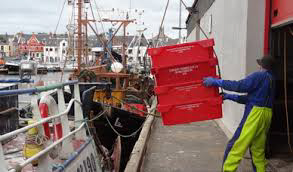EU directive set to impose environmental designations along Western Isles coast
6 July 2016
The proposed special protection area (SPA) encompasses much of the seas and coastline down the west side of the Outer Hebrides.
The area stretches from the north west coast of Harris, including Scarp, along the west coasts of North Uist, Benbecula and South Uist, Eriskay, Barra and Vatersay, to the south of Sandray.
Also included is the entire Sound of Harris, Sound of Eriskay and Sound of Harris. Heisker and Hasgeir are also earmarked.
A document says the SPA is "required under the EU Wild Birds Directive and the decision to classify these sites can only be on the basis of the scientific evidence" rather any negative impact on livelihoods and economic development.
It means present and future activities such as fish-
Scottish Natural Heritage is consulting on the proposals which support wintering
populations of seabirds -
The aim is to protect foraging grounds miles out at sea as well as shoreline places where they roost.
Western Isles Council previously slammed ‘policy protection’ which means that once a consultation is started on designating an area, in practice it is designated until a reverse decision is made.
Nine other large coast and sea areas around Scotland are earmarked for designations
including the Moray Firth, Skye, Inner Hebrides, Orkney and Shetland. Another five
draft SPAs -
Andrew Bachell, SNH’s director of policy and advice, said: “Scotland is an incredibly important place in the world for marine birds. Our seas and marine birds are a unique and exciting part of nature and attract many thousands of people to visit Scotland every year.
"We want to protect these areas to help the marine birds, and to ensure that they are safeguarded for the benefit of generations to come.”
Fishing, salmon farming, shellfish cultivation and marine energy schemes face restrictions under a move to impose further environmental designations along the Western Isles coast.
